
Close

Certain projects last for a specific period of time, after which they are considered complete. The effects of these projects, however, will often have a long-lasting impact on the people and communities that benefited from it.
The following is meant to give an idea of the variety and scope of already implemented projects.

As a donation of the UNDP, through SIDA (Swedish International Development Agency), 72 Solar Heating Collectors were installed at the Foundations premises. The clinics in Siddiqine and Jal el Bahr were provided with collectors, but the biggest number was set up in the Cultural Compound in Tyr, at the Nursing School. The daily hot water consumption is 6000 liters.
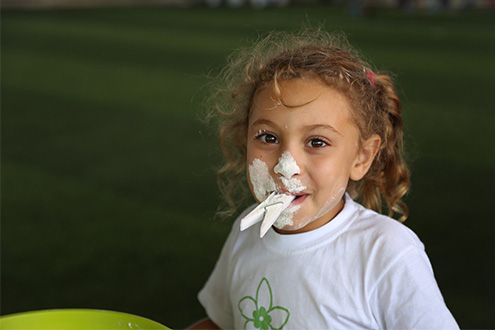
Just after the declaration of the cessation of hostilities, the Foundation resumed its activities, by hosting 330 war-affected children in a summer colony on its main premises. Through drama, singing, playing sports and group talks, these children had a chance to tell their stories, to express their fears and their feelings, and to try to normalize their lives. Teachers and graduates of the Social Animation Training were there to support the children in this process. Two similar camps, supported by UNICEF, took place in Ayta es-Shaab and Siddiqine in 2007. A total of 300 children aged 6-10 were encouraged to express themselves through art, games and handicrafts, to cope with the stress resulting from the war and the recovery and rebuilding efforts. Older children, aged 15-18, volunteered at these summer camps as facilitators. Other than trying to resolve feelings of stress, entertainment projects were provided to teach the children about personal hygiene, child rights and tolerance.

This project, implemented between January 2005 and October 2006, aimed to initiate the reintegration of ex-detainees into the social and economic life of (South) Lebanon. The Foundation conducted medical and psychological screenings for former detainees in Hasbaya, Marjayoun and Bint Jbail in order to improve the physical health of the ex-detainees by providing them with available drugs or referring them to other partners or advanced medical centers if necessary. The project also contributed to the identification process (including personal data and location of the former detainees), and to the identification of critical areas for follow-up projects by creating a medical mapping/ health profile.
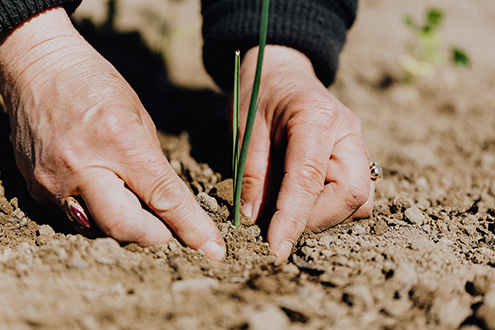
As part of the Community Development Program and in cooperation with the CDR (Council for Development and Reconstruction) and the World Bank, this is a program that targets the livelihoods of the female farmers in South Lebanon. The initiative aims at improving agricultural and living conditions of rural women in seven localities, namely Ayta es-Shaab, Rmeish, Dibble, Touwzagh, Ramya, Yaroun and Maroon er-Ras.
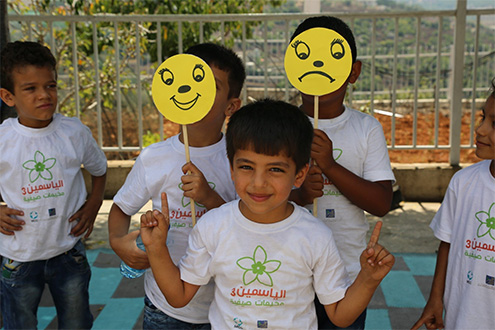
This is an ongoing project in collaboration with the IOCC (International Orthodox Christian Charities) and financed by USAID (United States Agency for International Development). The kitchen of the Foundation supplies public schools in the villages close to the international borders (the liberated territories) in South Lebanon with healthy snacks for the students, such as a bottle of milk or juice and a small cake.
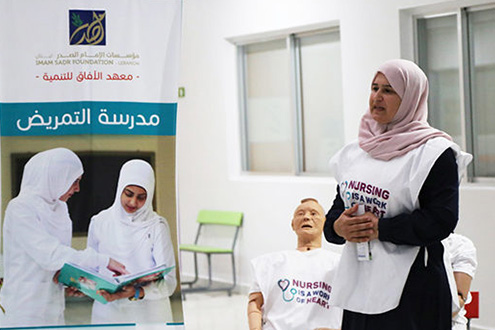
This pilot project of the Health Department, conducted in Ayta es-Shaab and Rmeish in cooperation with the WHO (World Health Organization) consists of conducting a full survey on women of 15-44 years old to investigate reproductive heath indicators and behaviors using innovative dissemination and communication strategies. Added to an assessment of the women’s needs, the project includes the development of adaptive reproductive health modules and standard operation procedures. These adapted modules are being integrated in the services of the primary health center in Ayta es-Shaab.
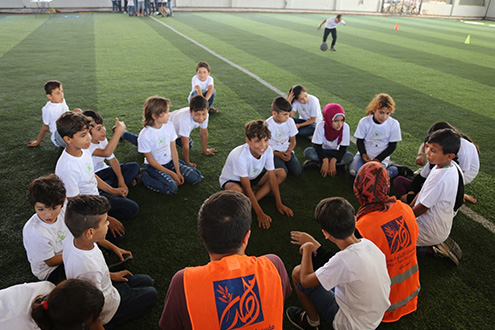
Among the projects that are not ongoing, but instead are organized on a recurring basis, is the summer camp. Every summer, for one month, the Foundation invites children of 8-15 years old to the compound for a summer camp. Its main objective is to give children from Lebanese emigrants a chance to integrate within their own age-group in Lebanon when they come back to the country to spend the summer, so in the summer camps they are always in the company of children who live in the area. Activities range from recreation and entertainment to teaching Arabic for those living abroad who don’t speak the language.